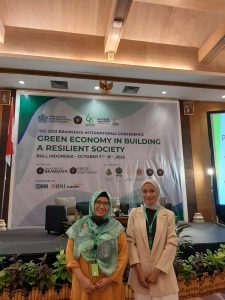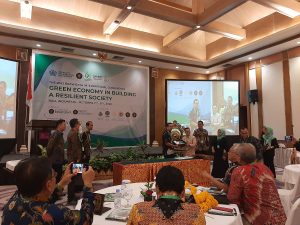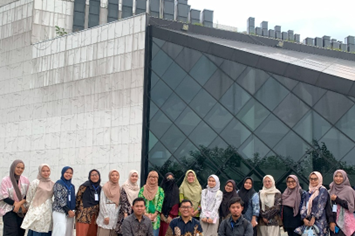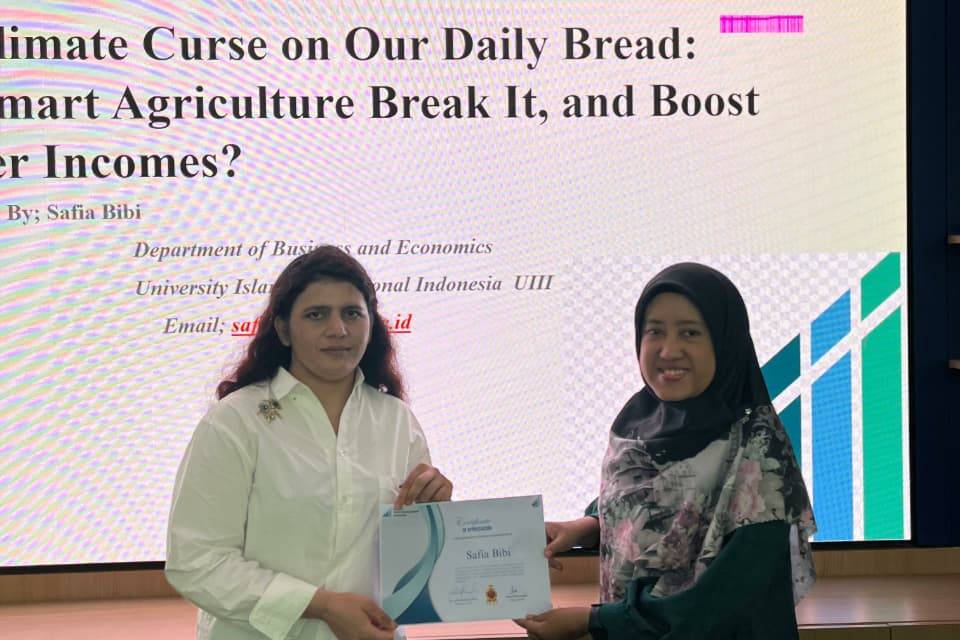
To foster inclusive economic growth, the government ought to be concerned with the reduction of environmental risk and ecological scarcity. The green economy is seen as a countermeasure to current economic issues globally in which green investment is to be increased while managing green sustainable assets and infrastructure as the economic pillar of the country. Milhatun Nisa’, a semester-three master’s student of FEB UIII is intrigued by what determines the rise and fall of carbon emissions in ASEAN countries. She, through her paper, analyzed and probed which potential factors such as trade, FDI, HDI, Non-renewable energy, subsidy, and globalization have an immense impact on controlling the carbon emitted in southeast Asia countries. To discover the trends of green economy, and exchange notions through networking in the related sector, she submitted her paper and got accepted at the 2022 Brawijaya International Conference under the theme Green Economy in Building a Resilient Society.

Taking place in Bali, the conference covered a wide range of scopes such as green political economy, green infrastructure and innovation, environmental policy, legislative developments and etc. In her presentation, she revealed that economic subsidies given might induce the purchase of fuel, resulting in an increase in emissions. lacking standard of decent living likewise, when the education ratio is low or the education accessibility is far-reaching, She suggested that it is compulsory for government to impose the investment on human development and foreign direct investment, while strictly controlling procedures as barriers to ensure the effective application of subsidy by community or industries that would sustainably benefit both economics and environment.

